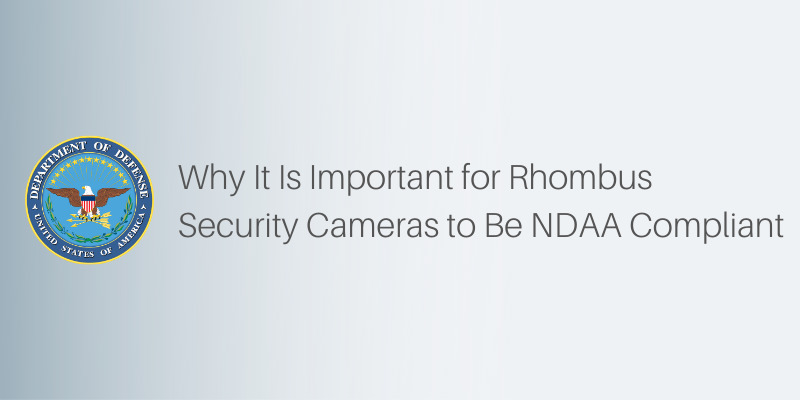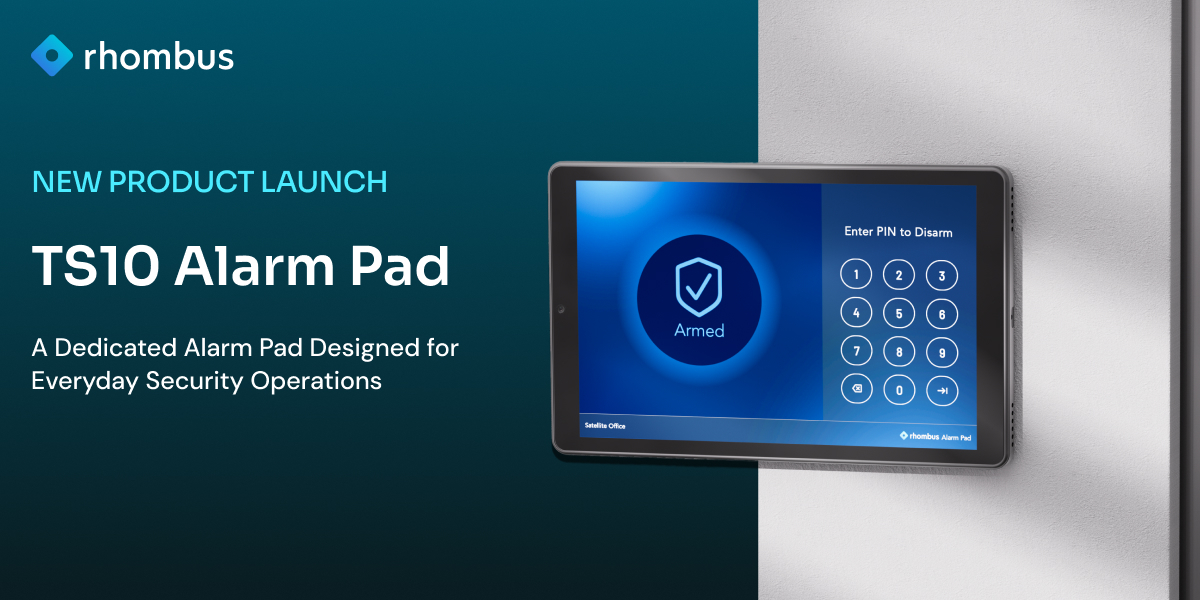Why It Is Important for Rhombus Security Cameras to Be NDAA Compliant

On August 13th, 2018, House Resolution 5515, better known as the John S. McCain National Defense Authorization Act, was signed into law. Since 1961, the primary function of the NDAA, as it is commonly referred to, is to authorize which US military programs will receive funding appropriated by Congress through the budgeting process. This NDAA, though, did more.
Specifically, for 2019 Fiscal Year, the NDAA banned US Government agencies from purchasing any products manufactured by Zhejiang Dahua Technology Co., Ltd. (Dahua) and Hangzhou Hikvision Digital Technology Co., Ltd. (Hikvision). The ban not only includes the ‘name brand’ products from these companies but also all of their OEM brands, as listed by IPVM here and here. Since the NDAA went into effect, some states and local Public Sector customers have also implemented rules to follow these bans.
While it is important that customers realize that the US Government has determined the products from Dahua and Hikvision present serious and credible cybersecurity risks, there is another company included in the NDAA ban that may be of even greater concern. The NDAA also expressly bans products from Huawei. Why does this matter? The Huawei ban is significant because one of Huawei’s subsidiaries is a company called HiSilicon.
HiSilicon is a major component manufacturer of video processing chipsets used inside many video surveillance cameras. Brands including Pelco, Honeywell, Hanwha, and FLIR have all been reported to have used HiSilicon chips. Even Axis has stated they use HiSilicon chips in some of their cameras. Why do these brands, and others, choose to use HiSilicon chips? Simply put, cost. HiSilicon chips cost less. This helps manufacturers keep costs down so they can make more profit. Do you know what chipsets are inside your cameras?
At Rhombus, we have always believed that ‘better is better’. All Rhombus cameras are powered by chips from Ambarella, a US-based manufacturer. Rhombus believes Ambarella provides better video quality, compression efficiency, power consumption, video features, and overall performance than HiSilicon. While Ambarella chipsets may cost a bit more, it is an investment we are happy to make so that Rhombus customers can trust in the quality and integrity of the solution. Using Ambarella chipsets, instead of HiSilicon, also means that all Rhombus cameras are NDAA-compliant.
When it comes to video surveillance systems, everything matters. The correct design and placement of cameras is important. The ability to integrate with other systems is important. Having a quality partner to install, configure, maintain, and monitor the system is important. Even choosing an end-to-end secure, cloud-managed system versus an on-premise NVR system matters (per the Symantec ISTR 23 report, NVRs – Network Video Recorders – ranked #2 in the device types performing outbound attacks, but more on that in a separate post). If you are considering upgrading your existing video surveillance infrastructure or purchasing a new system, consider Rhombus - quality components, NDAA-compliant, fair prices, and all-around ‘good guys’.
If you are interesting in learning more about Rhombus, attend our next live webinar or request a free trial!



